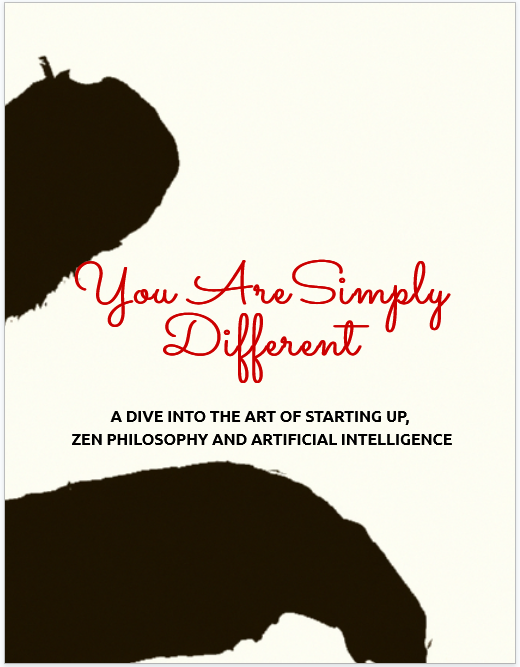Growing up in a developing country is like being a teenager in a small town: you know there’s more to life than what’s right in front of you, but it can be hard to shake the feeling that you’re somehow “less than”. For me, growing up in Tunisia was a constant reminder that my country was “behind” or “underdeveloped” compared to the rest of the world. It was like being told I was wearing last season’s clothes at a fancy dress party. But as I got older, I realized that these labels were just a way for the “developed” countries to make themselves feel better. And honestly, who wants to be friends with someone who only hangs out with the cool kids?
My journey through life has been a journey of exploration and understanding. I have been privileged to witness the incredible diversity of the world and its people, and I have always been filled with wonder at the vastness of the human experience. Despite this, I have come to understand that there are some who do not hold the same perspective. It can be challenging to navigate the opinions and perceptions of others, but it is important to remember that these do not define us. The complexities of human experience are a constant source of intrigue and inspiration for me.
But, let’s not get too heavy here, all of this is just a fancy way of saying that growing up in a developing country is like being a teenager, you’re trying to figure out who you are and where you fit in. But the good news is, just like being a teenager, it gets better.
Let’s not sugarcoat it, the environment we grow up in plays a significant role in shaping our lives. In the late 90s, the thought of being an entrepreneur in Tunisia was like trying to navigate a desert without a compass. “A startup? What’s that?” people would scoff. But for me, thinking and acting differently felt like a calling. I remember my initial hesitations about pursuing an academic or corporate career, but entrepreneurship offered a blend of science, wealth, and creativity that spoke to me.
Fast forward to today, and the landscape has changed dramatically. The year started off with a bang, as German biotech company BioNTech announced its acquisition of Tunis-born AI startup InstaDeep for a jaw-dropping $680 million. This is not only the largest deal involving the Tunisian startup ecosystem, but it’s also a far cry from the $14 million raised by all local startups the previous year.
But this success didn’t happen overnight. In 2016, a group of startup founders gathered at Cogite, Tunis’ first coworking space, to brainstorm ways to move the ecosystem forward. Together, they formed an NGO called “Tunisian Startups” and partnered with other organizations to draft the “StartUp Act,” which was passed into law in 2018. The government also established Startup Tunisia, an organization tasked with funneling public funding towards local startups and facilitating their launch and development.
The efforts of pioneers like Khaled ben Jilani and Alaya Bettaieb, to name a few, have enabled Tunisia to step into a brighter future. Khaled, a senior partner at the private equity firm AfricInvest, brought his experience to the table. Alaya, a passionate VC in his early sixties, is now leading the government’s startup strategy.
I met Khaled in the year 2000, a few months after the startup bubble crashed. He was leaving his bright career in the US consulting world to return to Tunisia, his home country, and join the equally bright team at AfricInvest (formerly known as Tuninvest). A few years later, I had the chance of meeting Alaya, who was one the very early Tunisian VCs, to pitch him about a crazy idea in the world of software.
With thousands of others, their contributions made the ambitious dream of a brighter future a reality.
When it comes to the shift towards a brighter future for startups in Tunisia, the list of contributors is so long it would take a phonebook to list them all. To each and every one of them, I extend my sincerest gratitude and admiration.
Starting up in a desert may seem like a fool’s errand, but as they say, “where there’s a will, there’s a way.” And let me tell you, the entrepreneurs of the Tunisian startup scene have willpower in spades. Take Kumulus, for example, led by the brilliant Iheb Triki, who figured out how to make water out of thin air with solar power. Who needs a lush garden when you can create your own oasis? And the best part? They’re now setting their sights on the global stage, having secured their first million dollars in funding in 2022. So, to all those skeptics out there, we say: “Don’t knock it till you try it.” Sometimes, the biggest opportunities are found in the most unlikely of places.
But let’s talk numbers for a moment, shall we? The InstaDeep deal in 2023, at a whopping $680 million, is like hitting the startup jackpot. To put that into perspective, that’s almost 50 times the amount raised by all local startups in the previous year. And while the MENA region is seeing a surge in venture capital funding, reaching a record-breaking $2.6 billion in 2021, that’s still only a drop in the global startup ecosystem bucket, accounting for a mere 2.5%. But hey, we’ll take it!
In order to successfully navigate the business landscape and identify untapped potential, let’s take the time to gain a thorough understanding of our target market. By gathering a comprehensive view of this landscape, we can begin to see where the opportunities lie, and position ourselves to seize them. This is the key to driving growth and achieving long-term success, and it requires a relentless focus on gaining an edge over the competition.
To keep reading, you can grab a copy of the book “You are simply different” here.
